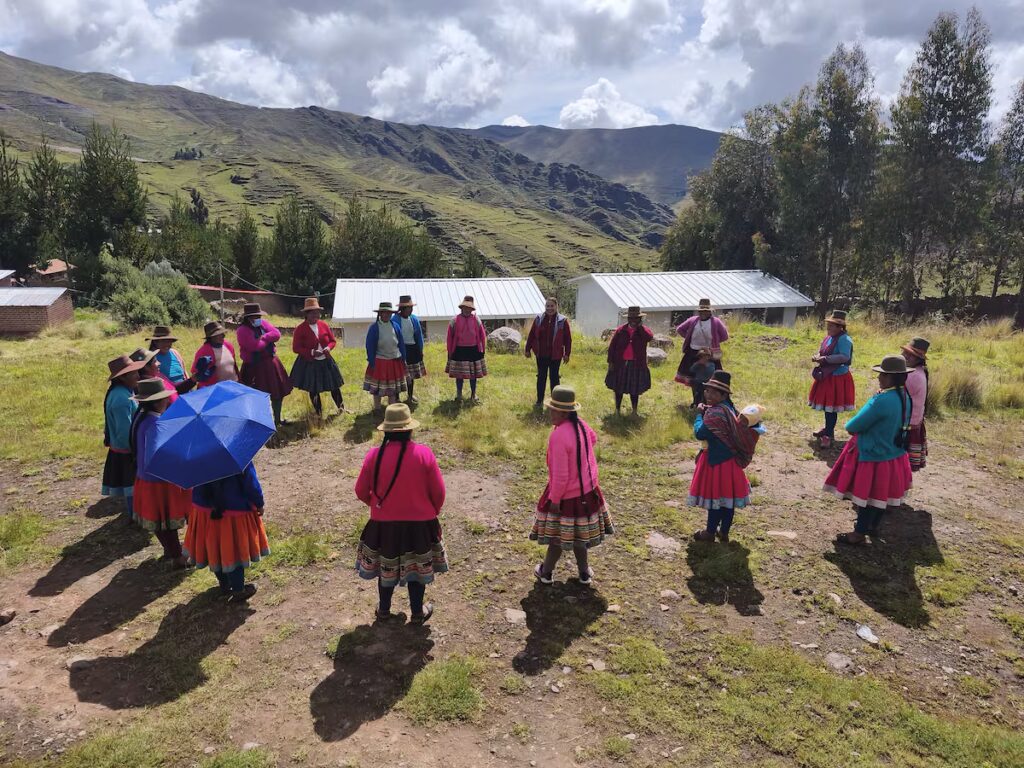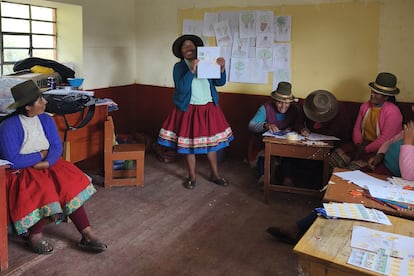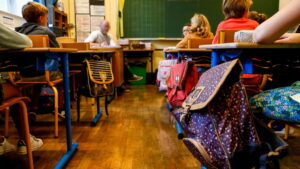
In the Upper Andean communities of the province of Quispicanchi, in the Cusco region of Peru, violence and discrimination against women constitute one of the most serious violations of human rights. Although physical aggression leaves visible signs, which are considered immediate proof to accept the complaint, it is psychological violence – a phenomenon often minimized and normalized – that profoundly undermines self-esteem, generates depression and limits the ability of victims to make autonomous decisions. This form of violence operates under the cloak of social stigma and mental health myths; a condemnation that pushes women into silence.
According to the latest demographic and family health survey (Endes 2024), in the first half of last year, 52.5% of women between the ages of 15 and 49 in Peru suffered violence from their husband or partner. Of the total, 48.9% was psychological violence, 26.7% physical and 5.2% sexual. According to national historical prevalence, psychological violence is much more predominant than other types of violence; However, it presents restrictions in access to justice due to the presence of structural, evidentiary and cultural obstacles, as revealed by the diagnosis of the obstacles to addressing psychological violence suffered by women in the province, prepared by the Institute for the Protection of Minors and Vulnerable Populations of the Antonio Ruis de Montoya University.
Structural barriers align with economic dependence as a critical factor, since 94% of women in Quispicanchi do not have paid work (according to the Gender Gap Report, December 2024), a vulnerability that anchors them in abusive relationships due to the fear of being abandoned by themselves and their children. In addition to this, cultural beliefs reinforce female subjugation, normalizing violent and unequal relationships in couples and families, discouraging reporting and seeking help.
For those who dare to report, the justice system presents serious evidentiary difficulties, since without tangible, specialized and timely evidence, psychological violence is given less priority and is more difficult to sustain, discouraging victims from continuing the process. Likewise, the use of the Quechua language is a decisive factor, as it is the most spoken language in rural areas, and the lack of professionals who speak it fluently constitutes a significant barrier to the provision of culturally relevant services. In the judicial sphere, dependence on translators can lead to problems with the accuracy and reliability of testimony, as well as the fact that victims often do not fully understand what is happening in the judicial process because it is not explained to them in their own language, affecting their trust in the system.
Faced with this panorama of vulnerability and silence, the project For the psycho-emotional recovery of Quispicanchinas women and the promotion of mental health by the communities, implemented by the Wayra Association and the Spanish NGO Manos Unidas between 2024 and 2025, it demonstrated that recovery and transformation are possible when the intervention is global and culturally relevant.
This project promoted a collaborative working strategy between the psychological areas of the relevant health facilities and community mental health centers with the project’s psychotherapeutic professionals, in order to ensure timely, permanent care and personal and family support, through case reports and follow-up reports. And faced with the desertion and abandonment of therapies by users, in particular women from rural and Quechua-speaking areas, complementary methodologies have been implemented to achieve their psychological recovery, in line with community and cultural relevance such as solidarity between women and interaction with Pachamama or Mother Nature to travel and reach the place Allin Kawsay or the Good living of people. By combining specialized therapeutic care with group psycho-emotional support workshops, it was possible to contribute to the psychological recovery of women who report gender violence.

The significance of this intervention lies not only in individual healing, but in these women’s ability to transform their personal healing into social and political impact. A group of women, who identified themselves as being in more advanced recovery processes, recognized that their testimonies could be of great help to other women in taking the first step in seeking help. They participated in radio programs, promotional videos and community campaigns.
Some others, interested in political participation in women’s organizations present in the area, have promoted the inclusion of the right to mental health in the political agenda of Quispicanchina women and in the work plans of the Concerted Development Instances. The latter is a space for articulation of the different bearers of duties and operators of justice in a given jurisdiction. Precisely in this space it was also possible to create legislative and legislative update workshops on psychological consultancy protocols in the event of complaints of this type.
The voices of the women of Quispicanchi broke the taboo. It is time for the State to respond with a structural commitment that makes emotional recovery not an exception based on a project or the provision of resources for private therapeutic care, but a right supported in a justice and health services system that guarantees timely, non-discriminatory and culturally relevant care, so that it ultimately reflects the spirit of the “good life” for all.





